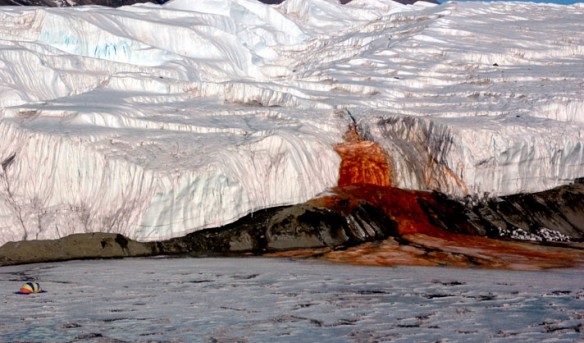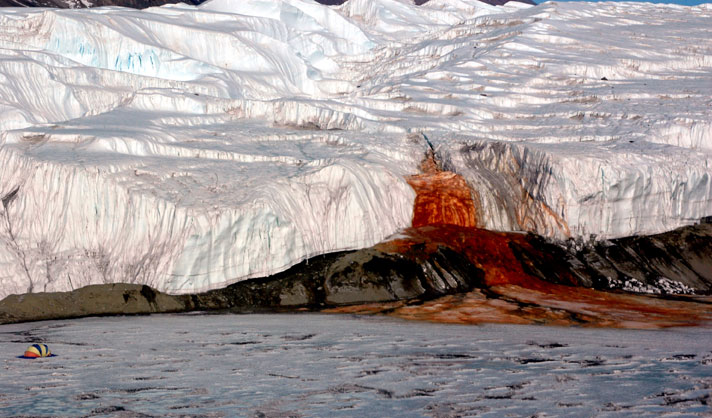
Blood Falls seeps from the end of the Taylor Glacier into Lake Bonney. The tent at left provides a sense of scale for just how big the phenomenon is. Scientists believe a buried saltwater reservoir is partly responsible for the discoloration, which is a form of reduced iron. Captions and Photo Source: ©© Peter Rejcek / National Science Foundation
Excerpts;
Antarctica’s Dry Valleys are the most arid places on Earth, but underneath their icy soils lies a vast and ancient network of salty, liquid water filled with life, a new study finds…
Read Full Article, Live Science (04-28-2015)
Explanation Offered For Antarctica’s ‘Blood Falls,’ Science Daily (11-05-2003)
Researchers have discovered that a reddish deposit seeping out from the face of a glacier in Antarcticas remote Taylor Valley is probably the last remnant of an ancient salt-water lake. The lake probably formed as much as 5 million years ago when the sea levels were higher and the ocean reached far inland…
Glacier “Bleeds” Proof of Million-Year-Old Life-Forms, National Geographic (04-16-2009)









